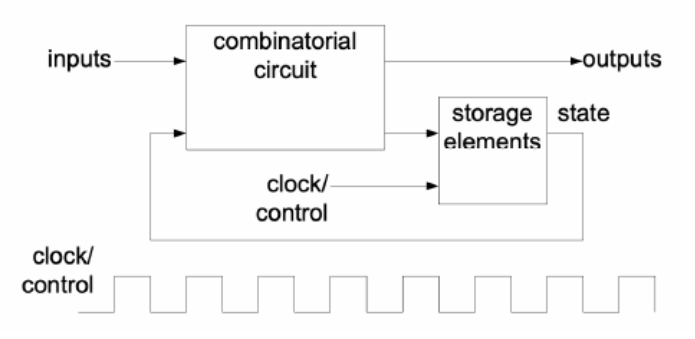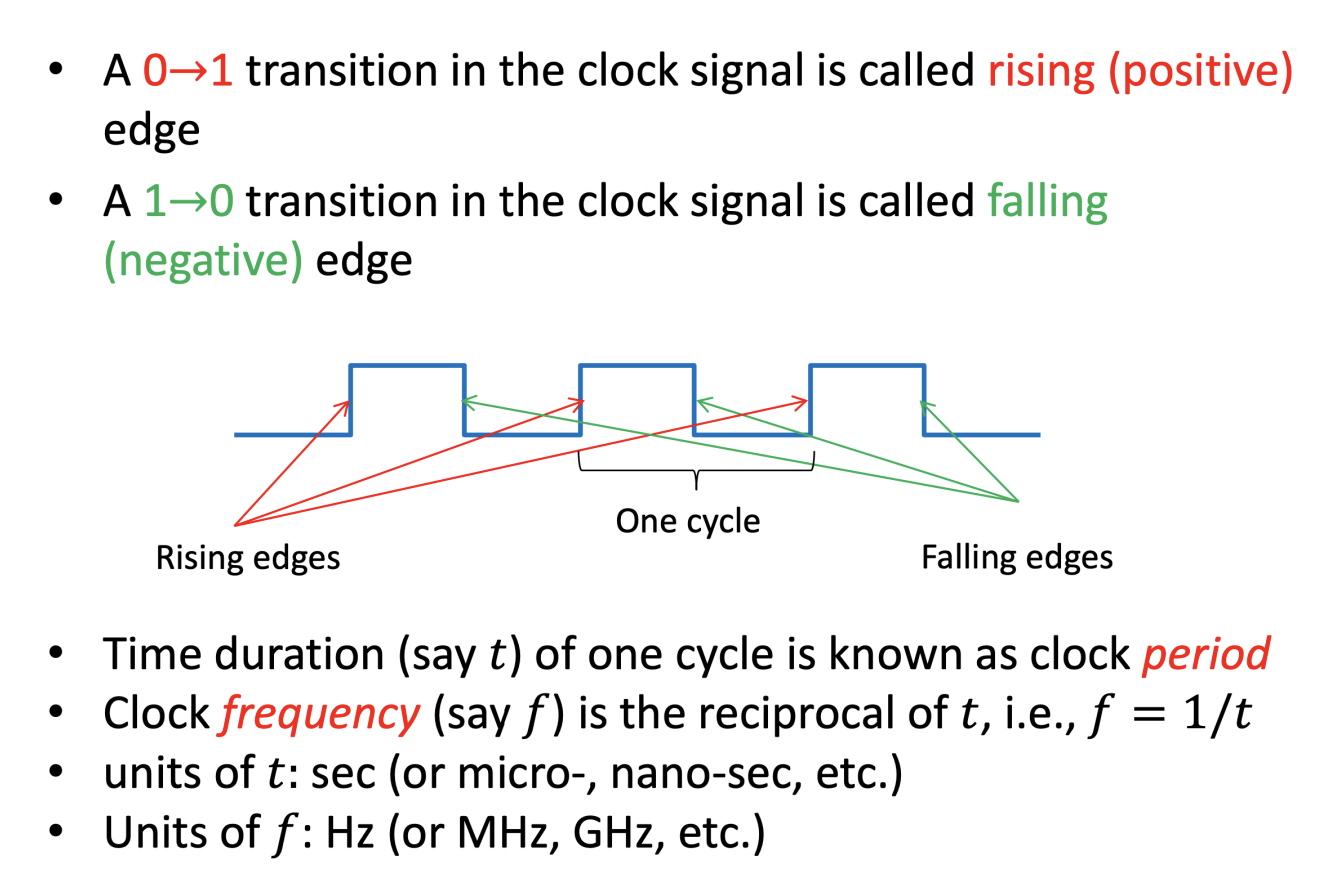Clock
Clock signals are particularly important to understand for designing synchronous Sequential Circuits (aka clocked sequential circuits).
A clock signal is used to control the behavior of a circuit at discrete instances in time
- by controlling/determining how and when memory elements can change their outputs.

Rising Edge and Falling Edge

Triggering Methods
1. Level Triggering (Latch)
- When Clock is high, there is transition.
2. Edge Triggering (Flip-Flop)
- Positive edge triggering (L→H)
- Negative-edge triggering (H→L)
- We can get edge triggering using a Differentiator Circuit
How do clocks work from a hardware perspective?
How can they provide such a consistent signal?
- When you press down a button, you might actually trigger multiple presses instead of a single one. This is where you need a